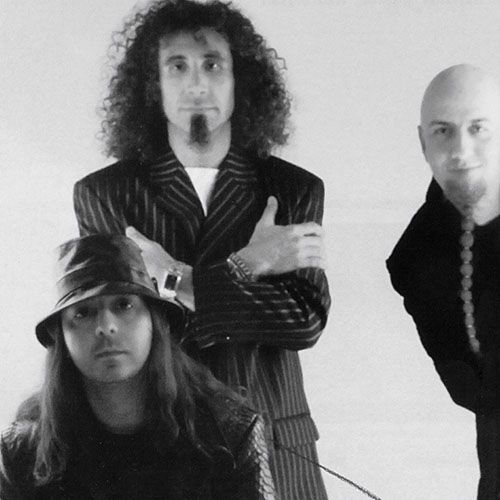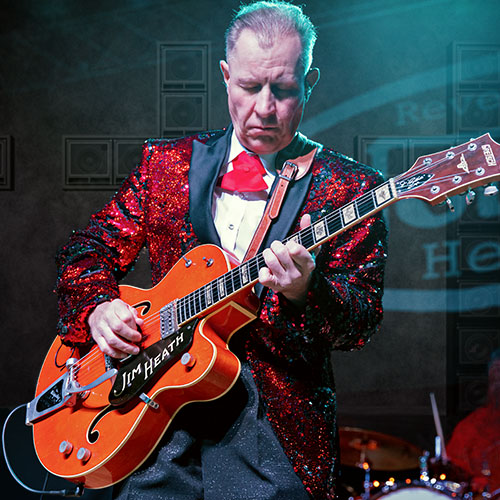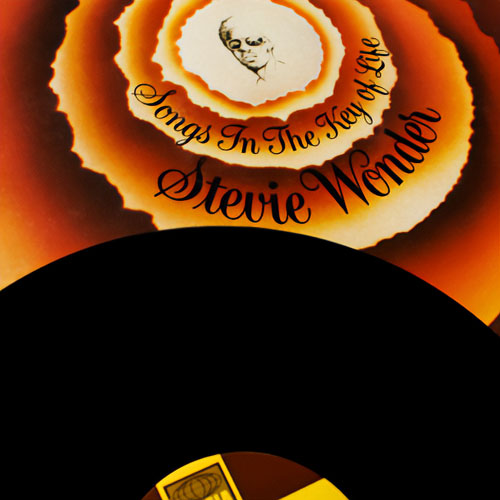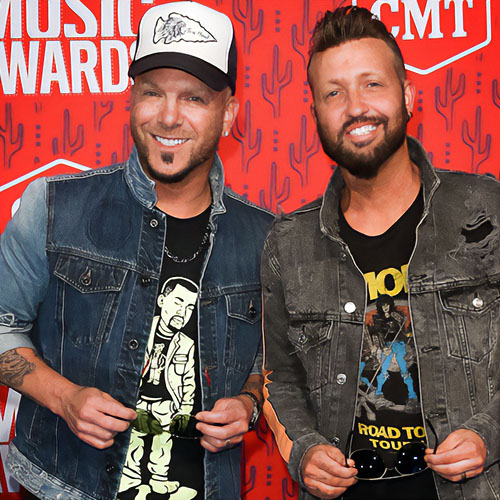Today’s ribald revolutionaries aren’t “throwing Molotov cocktails in some banana republic,” says the new book ¡Satiristas!, “they’re slinging jokes ‘cause they’re going bananas over the state of the republic.” If George Orwell was correct when he said, “Whatever is funny is subversive,” these fearless freedom fighters should be at the top of the FBI’s Most Wanted list.
Shock Them and They Will Laugh
When Colbert appeared at the 2006 White House Press Correspondents’ Dinner eviscerating President Bush to his face, he was hailed as a conquering hero. It was a moment that gave everyone in comedy pause, and made them question their own timidity. But while the comedy community — and many Americans — view Colbert as important and uncompromisingly ballsy, the man himself has a more measured view of what he does and the impact it has.
COLBERT: I don’t consider what I did at the White House Correspondents’ Dinner brave. Anti-authoritarian maybe, but I think there’s a difference between that and bravery, because I enjoyed myself. I was not afraid of the people in the room. I think “bravery” is action in the face of what you consider reasonable fear. But I wasn’t afraid; I was so excited. It’s like, if there was this chasm to go over and my jokes were my bridge, I had confidence in the construction. I was so happy to go and do it.
I couldn’t help but wonder if they had any idea they were letting a fox into the Republican hen house. If so, someone there has a real subversive streak.
COLBERT: I have to say that, afterward, I wrote to the Correspondents’ Association people who had asked me to do it and said, “I had a wonderful time, I certainly hope I didn’t make any trouble for you.” Because I didn’t want to; they were very nice to me, and I’m not an assassin. I really like doing my work and my jokes, but I really didn’t want to fuck this guy who booked me. But he said, “We loved it! Thank you. We’re thrilled.”
You faced some apparent disdain from Bush and others on the dais, and as I watched it I couldn’t help thinking, His tax returns for the past ten years had better be impeccable. Do you think it was perceived as more than comedy? That it was a real confrontation with the powers that be?
COLBERT: Oh, I don’t know if it was seen like that. I know that afterward there was a lot of talk in the press and the blogosphere about it, and much was made of whether there was any significance to the evening, but I purposely haven’t read that stuff, and in the room, nobody talked to me, so I have no idea.
Spoiler alert: A lot of people did see it that way. So you’re in what seems to me a very odd position: You’re an actor, a comedian, and a comedy writer, but you and your show are quoted in op-ed pages, studies say you’re considered by many to be an actual news source — or at least an alternative to distrusted news sources — and you, your jokes, and this comic character are part of the national discourse. ls that disconcerting?
COLBERT: I don’t know whether I accept that, Mr. Provenza. What I mean is, I don’t accept that responsibility, because I don’t accept any responsibility for anything I do, but I also don’t know if I accept that premise. I don’t necessarily think that my work is all that informative or all that influential. I think that it is influential in this regard: that I can make people feel better at times about something that otherwise might make them feel sick. But I don’t know if that’s the same thing as changing their minds. Surely someone’s given you the Peter Cook quote about satirists. When asked, “Does satire have a political effect?” he said something to the effect of, “Absolutely. All that great satire of the Weimar cabaret, look how they stopped Hitler.”
I think when we do the show well, or when I do my job well, on some level it reflects honest, passionately held beliefs. Now, could those influence people? They could. But I’m not doing it to do so, and I’m not expecting it to. I don’t feel it’s a failure if it doesn’t. If somebody tells me that I influenced them, it’s not for me to say they’re wrong, but that’s not my goal and it’s not the definition of my success. I’m out for laughs. When people came up to me after the Correspondents’ Dinner and said, “Fuck those people, man. What does it matter if they laugh?” I was like, “No, it kind of matters to me.”
So as satirists, by picking up and commenting on what’s already churning in the media, are we not then allowing ourselves to be “hijacked” the way the news cycle is? Should we be the ones to dig deeper to find some other take than what’s already gained traction? Or finding out what is not already in the discourse-but maybe should be-and presenting that instead?
COLBERT: I agree, and I think I do it. The danger, for example, is that I’ve got to do a show tonight, and today, the scripts aren’t ready. Generally, we have scripts in pretty good shape 24 hours ahead of time, but we’re doing a soup-to-nuts rewrite today. Sometimes you get pressed by that clock into a point of view that you don’t necessarily believe is the best, but that you know that will be comedically successful. That is a danger, but we try to continually name that danger. If we don’t do it half the time, I feel great.
I can understand getting hijacked by a particular take, because on The Colbert Report we’re constantly going, “Do we really want to say that, or are we just parodying what other people are saying?” We ask, “Is that really what the story is about?” all the time. I’m sure actual news [people] ask themselves that question all the time. But then there’s the hungry beast of the clock, which goes, “Come on, we know Blitzer’s going to be out there in The Situation Room in five minutes. What’s the story?”
And they go, “Well, this is just being reported.”
“Okay, let’s just go with that.” I’m as human as they are. But the real crime here is laziness. Lazy thought and willful ignorance. After the first time we ever did The Colbert Report, I said, “If this show works and goes on and on for years, it won’t matter who’s in office, what the political landscape is, or what the story of the day is, because what we’re talking about is willful ignorance of facts over what feels like news to you, what feels like the story, what feels like the truth.” I said, “That will never go away.”
One of the great sins in modern news is that the facts really don’t matter. Those nighttime shows are the most popular shows and they are all about feeling. That is not a sin specifically of the guys that I parody, that is a sin (and “sin” is a strong word, but I’m a Catholic) of laziness and fear — laziness about getting a different take on a subject, and fear that you won’t serve the beast of the clock on the wall. In my opinion. I could be wrong — I’m a comedian.
On The Colbert Report, you’re actually satirizing a form and type of media personality more than satirizing newsmakers.
COLBERT: We do both. I may be stealing this definition of satire from somebody, but “satire is parody with a point.” Presently, I am parodying willful ignorance. But I have to say the medium is a lot of my message.
Do you meet people who don’t get it? Who don’t see your character as a character?
COLBERT: People who care to know me generally get it. I’m not saying people never get it wrong, but I myself have only encountered that once: When I was still at The Daily Show, I did a piece about how diverse the population of delegates was at the National Democratic Convention: African-Americans, Native Americans, Jews, environmentalists — or “tree huggers,” as I’d call them — homosexual-rights lobbyists, union workers, “Ghandi lndians” — as I called them, as opposed to “Sitting Bull lndians” — that kind of thing. I got them all together on a panel and tried to get them to agree on things. Of course I picked very divisive topics, and it ended up being a cacophony that I just walked out of, like I couldn’t wait to get to the Republican Convention where they all spoke with one voice.
Then I went to do a piece at the Republican Convention. It had been kind of a dull night. Madison Square Garden was empty, but I’m sitting in the bleachers, thinking, How am I going to cut this together into something? and a guy comes over in one of those “here’s your cowboy hat for being at the convention” cowboy hats and he says, “I’m from the Bush headquarters in Dallas, and I gotta tell you, I love that piece you did on the Democrats and how many crazy different kinds of people they have! I mean, what are they thinkin’, man? They’re never going to get that coalition together.”
And I said, “Oh, that’s interesting. Um, you know, that was ironic. The whole point of it was that it’s a nice effort to try to get those kinds of people together. It was really kind of a celebration of what they were doing, and the idea that the Republicans are all one voice is a criticism of what is essentially the patriarchal power structure still propped up by the white, Christian, male leadership of the Republican Party.”
That was generally the idea of what I said to him, and he looks at me and goes, “Huh. Well … I’ll take your word for it, but it was funny as hell, man. We play it all the time.”
Then he just walked away, and I went, “Oh… okaaaay”
I can’t help wondering if that may happen more often than you’re aware.
COLBERT: I think maybe you’re right, too. I don’t put much stock in things like the Pew Research Center study that says young people get more of their news from me and Jon Stewart than any other place. However… Harvard did a study at the Kennedy School about Jon Stewart’s and my demographics. Basically, it said that traditional Democrats watch his show 46 percent to my 29 percent, something like that, and traditional Republicans watch me 49 percent to his 25 percent. So there might actually be some “I identify with what that guy’s saying.” There might be a little bit of that in there.
And does it matter?
COLBERT: Oh, it absolutely doesn’t matter to me. I’m not crafting my work for a demographic. I’m just glad people watch, and I don’t suppose they’d watch other than to laugh. So if they’re laughing, then that’s fine with me.
Given that “willful ignorance” is bipartisan, do you consider yourself left-wing or right-wing?
COLBERT: There are times that my character’s ignorance of himself allows him to say liberal things or even hold liberal ideas without any knowledge of it. In reference to my character, he’s generally conservative.
I myself sometimes agree with him. It doesn’t matter to me if my audience knows when that is, but I do sometimes agree with my character. But generally speaking, if you slap me across the face at 3 A.M. and say, “What are you?” I’d say I’m a liberal.
Can people not take the point seriously since it’s just from a quasi-fictional character? And if they hold views you mock, can’t they just say to themselves, “Oh, that guy’s just a joke”?
COLBERT: I try to wear his mask lightly, but never really take it off fully, because it allows me to say things that you would not forgive me for saying. For instance: “That Rosa Parks is overrated. Let’s not forget she got famous for breaking the law, okay? Last time I checked, we don’t honor lawbreakers. I think that gets lost in this whole back-of-the-bus thing. Don’t get me wrong, it took a lot of courage, but I think we’re burying the lead here. She’s a criminal.” I can get away with that through the mask of my character.
I suppose many comedians keep some level of mask between themselves and the audience, and the audience agrees to let them get away with it, but I wear it all the time on my show, to various thicknesses. That’s how the character helps me. I can get away with shit. Most of the time.
Vernon Chatman & John Lee
Vernon Chatman was a consultant on South Park(and gave voice to the lovable Towelie), won an Emmy for The Chris Rock Show, and wrote for Late Night With Conan O’Brien before joining creative forces with John Lee to cocreate, write, and produce the now-defunct MTV series Wonder Showzen, the brilliantly twisted anti-Sesame Street for the nihilist child and bipolar Muppet in all of us. They are the team behind the ethereally funny Xavier: Renegade Angel, and the deadpan unreality show Delocated, both for Adult Swim. Along with their partners in PFFR, their production company/ band/art collective kinda sorta, they just may be the darkest, most inventive, imaginatively subversive minds working in television comedy today.
CHATMAN: On Wonder Showzen, we put all our darkness and cynicism through the vessel of a child. That’s it. That was the entire premise of that show.
LEE: Because if we do it, we’re assholes, but if a little kid does it, it’s cute and funny.
CHATMAN: Ironic and deep.
LEE: It says something.
Well, you know… It does, actually.
CHATMAN: But we weren’t like, “This is an important thing.” Mostly, it was, “These are scrappy little shitty, cynical things we want to say and if we get a kid to say it, it’s funny.” I don’t think we ever think much about a point. We’re not that smart. The degree to which we put any statement in is “just enough to keep things interesting.”
That show grabbed me right away, because I despise prepackaged, one-size-fits-all sentimentality. To be cynical about it in the context of a kid’s show I think is substantive.
CHATMAN: We want to smash those smiles off people’s faces.
We’re always surrounded by so much artificial sentimentality, which I find vulgar. Whenever I see those sweatshirts with cute little kittens and puppies on them, I think of the factories where five-year-olds make them for two cents a month.
CHATMAN: All the emotions that go into all that are fuel, sure, but it’s also a dark black hole to go down; it’s not that creative. It wasn’t just cynicism with Wonder Showzen. A lot of it was that kids are just funny and fun. They’re anarchic and goofy. Their personality and energy bring out the kid in us.
Was your voice as a stand-up similar to your voice on TV?
CHATMAN: I definitely indulged in rape and abortion jokes and the darkest, bleakest shit. But there are limits when you have a live audience. When you’re on TV, you’re not in the room, so they can’t punch you.
LEE: Were you punched onstage?
CHATMAN: I’ve been punched as a result of Wonder Showzen. Doing the Clarence puppet with strangers in Central Park, we got knives pulled on us; I got punched in the head in a restaurant —
It seems endemic for many of us in comedy that, for some twisted reason, it’s more compelling when someone gets upset about something we think is funny than just to see them enjoying themselves.
LEE: Somehow what you’re talking about is kind of sad. Being cruel and pushing somebody is much more somber than someone going, “Hey! Here’s ten jokes about rednecks.”
Are we just hiding cruelty because it’s funny enough on the surface?
LEE: We just can’t think about it. People ask us, “Should you really have little kids saying stuff like that?”
And we’re like, “Yeah, it’s fine; they know about it.” But really, ultimately, probably not.
There is something cruel to it, but the larger point of it being funny and somewhat interesting makes it okay in our world. I feel fine with it because I do think it’s funny and it was interesting to show that contrast.
CHATMAN: We put our Clarence puppet on the street to provoke people, just to get people mad at a puppet. It is a shitty thing to do, that if they get angry, you’ve got a good shot. And I see people I fucked with walking down the street, too. I saw this crazy hippie we had harassed, and he recognized me and punched me two years later. He’s like a gnome with a blanket and he flipped it on me. I inhaled all of those germs.
LEE: Ewww, hippie dust.
In his defense, when Clarence provoked, it was from a heady place. Harassing joggers in the park with “What are you running from, your fears?” and “You can’t run away from the truth.” Pretty big ideas for a puppet.
CHATMAN: That’s inevitable with a show that’s “cute” on the surface. For the contrast, you go to the darkest place· possible and put the brightest colors on it. That’s sort of our personality. Thematically, we don’t really talk about the big things. We just focus on the joke. People who are thinking about “the grand statement” are probably working at Kinko’s right now.
Have you had much resistance?
CHATMAN: Yeah, we got canceled. And it took six years to even get Wonder Showzen on the air.
On your “Beat Kids” segment, this cute little kid was obviously being fed lines, but the adults he was screwing with never seemed to register that. It’s amazing.
CHATMAN: We’d go right up to him and whisper stuff right in his ear! Everyone always saw it.
LEE: They’d be arguing with the kid, we’d whisper right into the kid’s ear, the kid would say it, and they’d literally go, “Where’d you get this kid? It’s incredible what this kid says!”
CHATMAN: Weird psychological trick. Very strange. We’d have the kid say something offensive and then we’d go, “Trevor! How could you?!” clearly acknowledging the obvious charade, but people still seemed to buy it. They don’t seem to notice the camera, the whispering, anything.
Have you had any dealings with —
CHATMAN: Death threats? Have I had dealings with death threats? I’ve had a death threat. White supremacists, wasn’t it?
LEE: Yeah. But it seemed like some kind of a prank.
CHATMAN: I hope it was real. That’d be comedy cred, right?
LEE: That’s cool. Like getting raped in prison.
CHATMAN: We did this thing celebrating white culture: “This episode of Wonder Showzen is brought to you by … white people.” And we guess someone saw that and said, “You’re making fun of white people? That’s not right.”
LEE: There were on line debates where people liked certain points of the racism. “I like that racism, but are they making fun of white people in this bit?” I guess people like that get easily duped.
CHATMAN: We’d have a joke that’s ironically racist, but then you’d see people who are —
LEE: — really racist.
CHATMAN: — happy there’s racism there. There’s a lot of paranoia that we have the wrong people with us sometimes.
LEE: But you can’t let stupid people stop you from doing stuff.
CHATMAN: People who misinterpret your jokes, that’s their problem. We had a little kid dressed up like Hitler, asking people, “What’s wrong with the youth of today?” And that only came up because we wrote another bit we thought would never get through, so we thought, What’s the craziest, stupidest thing we could come up with?
LEE: We’ll put that in the script, and they’ll say, “You can’t do this and that,” and we’d go, “Okay, we won’t do that, we’ll just do this.”
CHATMAN: But they went, “Oh. Okay.”
LEE: “Can’t wait to see the kid in the Hitler outfit.”
CHATMAN: We were like, “Holy shit.” We were legitimately like, “Is this right?”
LEE: We went back and forth on it for like… a minute. Ha! No, overnight. CHATMAN: Then it was a matter of convincing a kid’s parent to let us do it with him, and can we convince ourselves that there’s any actual legitimacy to the whole thing?
LEE: It at least has a legitimate question: What is wrong with the youth of today?
CHATMAN: There’s nothing I regret in that bit, but I think some people were hurt or offended.
LEE: The saddest thing was that some people saw the kid and said, “Is that little kid dressed up as somebody? Who’s he supposed to be?” One guy asked, “Is he that Korean guy?”
CHATMAN: He’s got the moustache, the hair, armbands, swastika-everything. Marching around, arm stuck up —
LEE: Some people had no idea, that was the most disturbing thing about it.
CHATMAN: The kid’s going, “What’s wrong with the youth of today?” and I’m thinking, What the fuck is wrong with everybody?
LEE: We were like, “He’s dressed like Hitler! That’s, like, the number-one bad guy, isn’t it?”
I can’t help wondering what the network didn’t let you do.
LEE: The censors never saw us, never met us, and we did some black satire and they asked us over the phone —
CHATMAN: “Is one of you black? Maybe if it was a black person…” And I’m half-black, so I said, “Yeah.” And then they had nothing more to say to us!
LEE: Crazy, right? That’s completely nonsensical.
CHATMAN: That’s the scary thing about network standards people: If somebody’s white, they don’t feel comfortable judging what’s acceptable to blacks, whether it’s okay to say “nigger” here or there, so they just don’t touch it. So… hey! How about you hire a black person? There’s an idea!
So you guys say a horrible word on TV, and in return a major network finally hires a black executive. That’s an interesting conundrum.
CHATMAN: Right. Of course, throwing it back in their face like that doesn’t usually help.
LEE: I’m a quarter Asian. That’s why we hooked up; we thought we could cover a lot of racial territory.
CHATMAN: My favorite example of that is in South Park. The Mr. Garrison character can say “faggot” because he’s gay, but another character — with the same guy doing both voices — can’t.
LEE: So they really believe the character’s a real person and acknowledge him as a citizen.
Should everybody have the right to say things?
LEE: Are we contributing to the moral demise of the country? Yes. They were always sensitive about religious stuff, too. That was kind of the biggest thing. We had a little puppet on the cross, and they said, “You can do God, you just can’t do Jesus. God is just an abstract idea, but Jesus? People will get offended.”
CHATMAN: Someone actually said this to us. Please print that; I want it on the record. I’ll say it again so you get it right, and you promise you’ll print it. Someone at the network said, “You can make fun of God because he doesn’t exist, but you can’t make fun of Jesus, because he’s God’s son.”
Judd Apatow
Though he felt unable to find his own unique voice and persona as a stand-up, Judd Apatow’s outsized comic gifts and originality were immediately apparent, and earned him the respect of some of comedy’s biggest names. A gifted writer, he moved easily into writing and producing television, yielding cult hits The Ben Stiller Show, The Larry Sanders Show, The Critic, Freaks and Geeks, and Undeclared. He transitioned deftly into features, producing The Cable Guy and Anchorman before breaking out as a writer/director with the sleeper hit The 40-Year-O/d Virgin and becoming the most in-demand-and profitable-comedy guru in Hollywood. Apatow has raised the bar for exploring heartfelt, touching human experience through sometimes profane, always smart comedy.
APATOW: I think it’s fun when men open up. That’s why in Knocked Up, they take mushrooms so they can say what they’re really thinking — which I did once; I was on mushrooms on a first date with this woman and after she rejected me, for three straight hours, I just asked her why.
Two women opening up to each other isn’t as comedically interesting to me, because women tend to do that naturally. But guys trying to be open and vulnerable while trying to be macho and strong at the same time is pure comic fodder.
APATOW: I think a lot of that’s just being uncomfortable being a man and the struggle — to “own” your masculinity and cockiness as part of all that. I’ve always found that funny. The goofy guy trying to figure out how to be confident is one of the funniest things of all to me. I also think there’s an interesting dynamic of women “straightening out” men or trying to manipulate them into being something different. That struggle is always human, and really good for comedy.
And they’re usually both right and both wrong — that’s what’s really funny.
APATOW: I learned slowly over the years that I’m wrong about most everything. In every fight, there’s that struggle to accept the fact that you’re wrong about something and how hard you’ll hold on to being right.
Your movies say a lot about the male-female dynamic, evolution into manhood, and our assumptions about all that sort of stuff, I think. But they’re not always appreciated for that, are they?
APATOW: People see the movies through their subjective eyes. Some critics said they’re sexist, but to me the whole point is that there’s no way the guys could be worse with their behavior; it’s about their struggle to grow up, to be able to handle a family and kids and whatever. With something like Seth saving his bong during an earthquake before thinking about his pregnant girlfriend, I’m trying to show the worst side of a man.
And I should also be able to show the worst side of a woman, which sometimes is being pregnant and hormonal and kicking your boyfriend out of the car in the middle of a major intersection. You go into nesting mode, your hormones are kicking in, you’re in a panic trying to hold it all together, and once in a while it just blows — at the man you’re with, or at someone you bump into walking down the street. That is very real, very human, and also very funny.
In Knocked Up, I tried to show a really unpleasant relationship; two people that don’t really work well together. I always thought, These two might not last three weeks after this movie ends. It doesn’t even imply they’ll be together forever, but I like that they’re saying, “We screwed up and got pregnant. but we owe it to the baby to at least find out if we could like each other. It’d be wrong to not find out.” That’s the point of the movie: They don’t just blow each other off. It’s an original premise, because people don’t do that. People usually just head out of town.
And some people say, “Oh, come on, a woman like that would never go for him.” Well, a goofy Jewish guy being with a gorgeous woman is not all that crazy. If you need proof, Google Image me and my wife. Look at my wife, then look at me.
I walked out of Pineapple Express — a very funny movie — thinking, I don’t know whether this is a pro-pot or anti-pot movie.
APATOW: That movie started because I watched True Romance, and Brad Pitt played this guy who was high in one scene, but he was so funny I wished they were chasing his character instead of Christian Slater, because it must be really hard to run away when you’re that high. And I thought How great would it be to do a Cheech & Chong movie but with Jerry Bruckheimer-level action? A big action movie, but they are just high out of their minds.
I had read Superbad, but couldn’t get anybody to make it, so I thought, If Seth Rogen and Evan Goldberg wrote this stoner/action-movie idea, maybe that’s more commercial. I don’t know why we thought the pot movie could be more commercial than the liquor movie, but Superbad ended up happening, and in the middle of shooting that, the studio said, “Since the alcohol movie seems to be going well, maybe we should make that pot movie, too.”
Now, Seth and Evan always said, “Superbad is the kind of movie we wish someone would make. It’s the way we talk, the kind of comedy we like, the kind of action we like,” so it’s been like hooking into two people with this unique perspective as young guys; how they look at the world and what they want to see.
I can talk to them, like, “You have these friends in Superbad, but other than trying to get liquor, what’s the movie about?” I said to them, “It’s really about two guys that love each other and are about to separate probably for the rest of their lives, and they’re heartbroken and mad that they can’t stay together.” That’s the engine of Superbad.
With Pineapple Express, we kept saying, “What is this about underneath all this action and comedy and this tone?”
Is it about class division? Self-delusion? Alternative realities?
APATOW: Our friend Ian Roberts from Upright Citizens Brigade did the table reading and said, “My favorite thing is that it’s a story about a guy trying to figure out if he’s really friends with his drug dealer or if he’s just his drug dealer.”
And that was kind of in there, but suddenly that became the story that motored the whole movie: “Am I really friends with this guy?”
But it’s about Seth’s character, who smokes pot, thinks it’s okay to smoke pot, doesn’t think it’s dangerous, doesn’t think there’s any collateral damage, but he looks down on the guy whose/ls it to him. He slowly realizes smoking pot causes so much damage to him-and to other people by supporting, like, a whole crime industry.
I kinda wanted to say there are probably as many people getting killed from pot dealers as from coke dealers. Seth and I had an ongoing debate while making the movie. Seth always said it was not an anti-pot movie; I always said it was: “He smokes pot, has a terrible job, dates a high school girl, for the whole movie the dealer’s trying to kill him, then at the end he realizes, ‘Maybe I shouldn’t live this way.’”
Seth said, “Nah, he’ll probably just keep smoking pot.”
So you can see it and think it shows the joys of smoking pot, but… all I know is he gets his ear blown off, almost dies, and basically gets about 20 other people killed — so you’d kinda hope that the next day he wouldn’t run straight to the pot dealer. But that’s for people to debate.
My daughters are 12 and 7, and I think a lot about what they’re going to make of my movies. Will they think they’re unethical? That I’m promoting pot use? What I tell my 12-year-old
is that I find idiots to be really funny. That’s why they curse in my movies or smoke pot all the time: because they’re a mess, and it’s funny to watch people who are a mess try to get it together.
What’s funny is some conservative website had Knocked Up and Superbad on their list of top-ten movies. They said, one says, “Don’t have an abortion,” and the other says, “Don’t have sex before marriage.” Neither is specifically what we intended to say, but… Beneath it all, hopefully, is something positive to think about.
At the end of the day, I want to get my thoughts across and give the crowd a great time. Those things can work together.

























